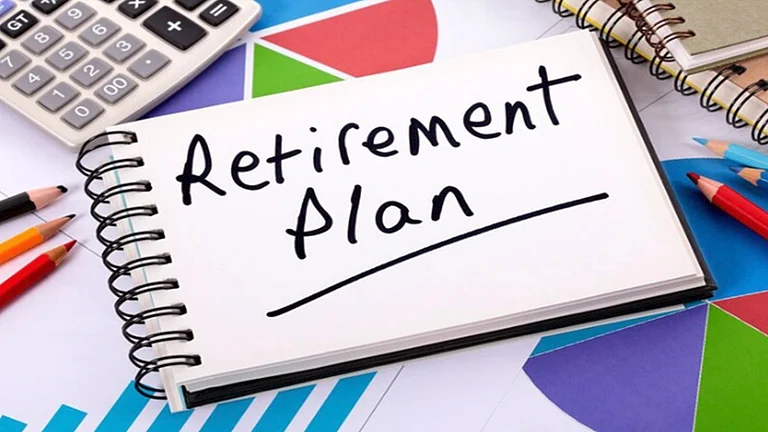Money discussion is a taboo area in many households as parents and other elders continue to exert a lot of influence over their children resulting in a hesitation to ask parents about their money.
Parents do require help as they tend to invest in what they are comfortable with and not what may be most suitable for them.
There are several ways elders can be assisted in managing their money.
Money Management Of Parents And Elders
Some parents shut down well-intentioned children who muster the courage to talk about the parents' money management
By Suresh Sadagopan
Money discussion is a taboo area in many households. Parents tend to ask their children about their income and how they are investing, without embarrassment. They do it as they have the force of being the preceptors and guardians throughout life.
Children have a disadvantage here. They have been under the shadow of their parents and hesitate to get into the money affairs of parents, in general. It is not that they do not know what their parents have, what their sources of income are, or where their investments have been made. Most know.
The parents and other elders continue to exert a lot of influence over their children, well after the children become adults. And hence, there is a hesitation to ask parents about their money as it may feel like stepping on their toes.
Parents also shut down well-intentioned children who muster the courage to talk about the parents' money management with something like, "We have been managing all along, from even before you were born", or variations of that. Reason why many steer clear of such conversations!
However, parents do require help as they tend to invest in what they are comfortable with and not what may be most suitable for them.
Basic education and assistance
The seniors tend to stay with what they know. They invest in the staple FDs, Bonds, Senior Citizen Savings Scheme, etc. While these are not bad products, there could be scope to optimise the portfolio in terms of risk and reward.
What is needed is education - a patient explanation of the various products, relevance, and benefits. It may not hit home immediately. More work may have to be done over time. Also, the parental hesitation to accept what their children have to say may also play a role.
When the senior comes around, arranging to invest in the suggested product is the next job. Assisting them with a seamless and painless experience is what helps them to make the transition.
Protecting and shielding against fraud
Seniors are vulnerable in more ways than one. They get accosted by sellers who pitch them inappropriate products, not suited for someone in the retirement phase, like life insurance products.
Sometimes, it is even worse - the products are downright fraudulent Ponzi schemes. The sellers of such products are glib talkers, come through known contacts, and use human psychology to devastating effect.
They also need to be sensitised to the pernicious problem of such mercenary salespeople who will sell anything to meet their targets, to the industry that has sprung around cheating people of their savings and investments through cybercrimes.
The problem in the cyber domain has become big. A good percentage of the crimes perpetrated in the digital domain are against senior citizens who unsuspectingly fall for lottery scams, extortion based on narcotic parcels in their name at customs, suspicious transactions they are supposed to have made, and the prospect of arrest, etc.
Seniors need to be informed, sensitised, and protected from such scams and frauds.
Weeds in their investment garden
A lifetime of investment makes one's portfolio scattered, bloated, and unmanageable. It also contains components that are not a good fit for a senior citizen.
They have risky equities, sometimes, PMS, AIFs and other speculative investments. Some of them also invest in "conservative" investments yielding high returns - FDs that give double-digit returns, Nidhi or other investment options that offer high returns. In their mind, they are safe. However, many such investments are very high risk and may not be suitable for retirement.
Sometimes, the investments are in properties that offer rentals. Rentals tend to be low compared to property values. There are also the hassles of following up and collecting rents, maintaining the property, dealing with brokers, periods of non-occupancy, and other such issues. These are avoidable problems in the retirement phase. Apart from the hassles, this is no way to set up a stable income stream.
Professional assistance
In a lot of ways, seniors will be served best if they have a good advisor to offer counsel and manage their portfolio.
A Financial Advisor would look at their personal life position, their needs, and align the portfolio to their situation. With an advisor, the portfolio is purpose-built after a full consideration of all relevant factors. Hence, such a portfolio is rightly positioned in retirement, is streamlined, and manageable.
Quite apart from a well-crafted portfolio, seniors will benefit from the implementation, back-office support, and reporting. A Financial Advisor also ensures that they have access to good counsel and sound advice throughout - this means that they will be saved from risky proposals, ponzi schemes, and digital frauds.
Overall, professional advice will be invaluable to Seniors, allowing their children to breathe easy!
The author is the MD & Principal Officer at Ladder7 Wealth Planners and the author of the book "If God Was Your Financial Planner"
(Disclaimer: Views expressed are the author's own, and Outlook Money does not necessarily subscribe to them. Outlook Money shall not be responsible for any damage caused to any person/organisation directly or indirectly.)

